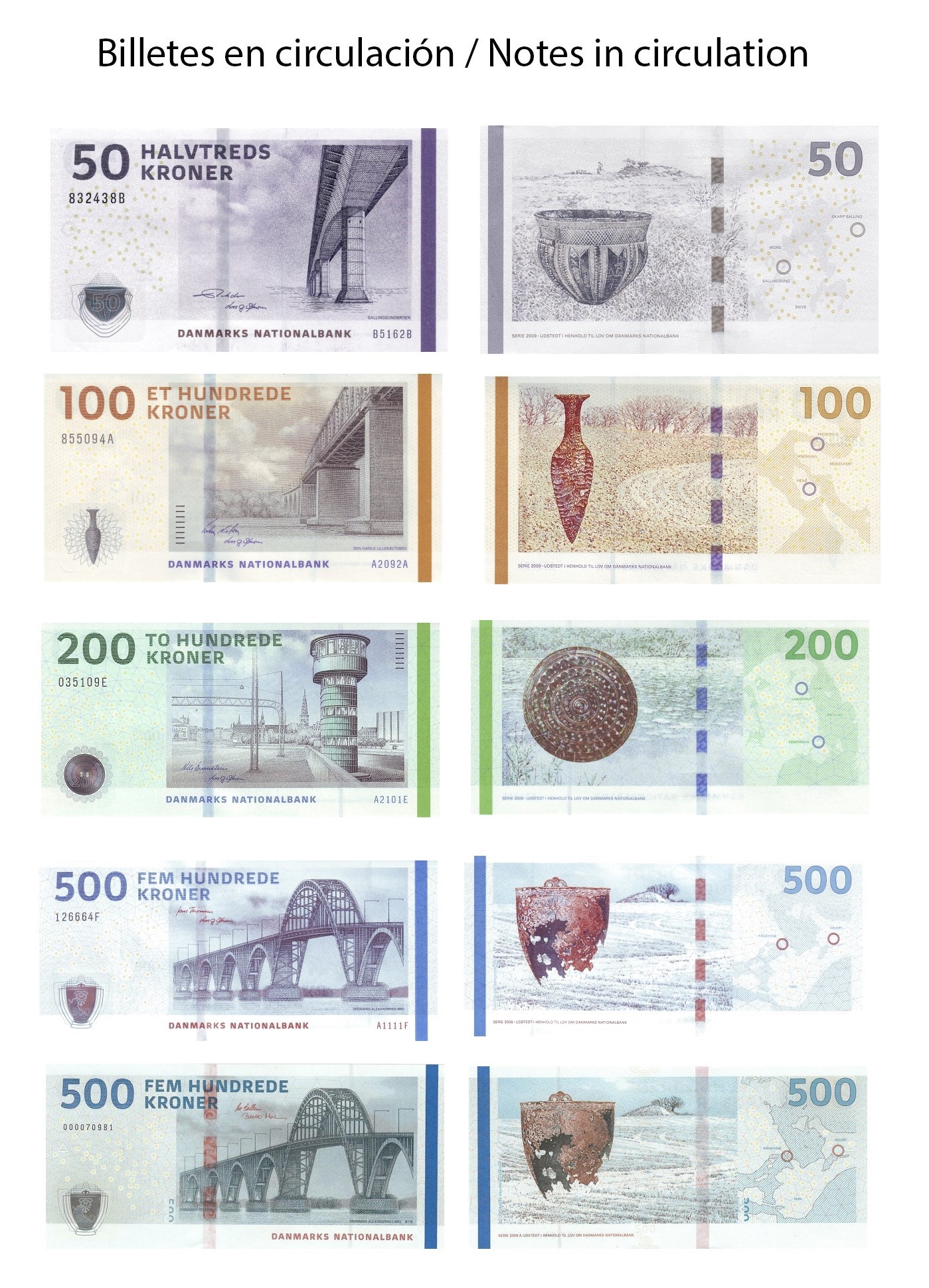Danish krone exchange rate
WE SELL RATE HISTORY OF DANISH KRONE
WE BUY RATE HISTORY OF DANISH KRONE
DANISH KRONE INFO
The Danish Krone is the official currency of Denmark. It is also legal tender in other countries like Faroe Islands and Greenland.
Notes: 50, 100, 200, 500 kroner
Coins: 50 øre and 1, 2, 5, 10, 20 kroner
Subunit: øre
Code: DKK
Symbol: kr
Main Exchanges
Are you travelling to Benidorm, Torrevieja, Benalmádena or other mediterranean destination in Spain? Then you will need to exchange your Danish Krones into Euros. In Eurochange you can buy Euros at the best price and with total availability. Find the closest exchange office. Moreover, if you are going to Denmark, you can buy Danish Krones in some of our branches or you can buy them online.
About Danish Krone
The Danish Krone is the official currency of Denmark, Greenland and the Faroe Islands, the ISO 4217 code DKK and the symbol they use for currency is "kr". Each Krone is divided into 100 Øre.
History of the currency of Denmark
The first Danish Krones were minted in the XVII Century. Before this, other coins called Krones existed. In 1873 Denmark, Sweden and Norway formed a monetary union to use a common currency, the krone. With the arrival of World War II, the union was dissolved. But the three countries continued calling their currencies Krones.
Danish Krone Coins and Banknotes
There are 6 banknotes of Danish Krone in Denmark: 50, 100, 200, 500 Krones. On one side of the note shows images of existing bridges in Denmark representing different architectural styles (the bridge of Sallingsund, the bridge of Lillebæltsbro, the bridge of Knippelsbro, the bridge of Dronning Alexandrines Bro and the bridge of Storebæltsbroen). On the other side you can see antique objects found in archaeological deposits near the bridges represented. In addition, a map is displayed with the location of the findings and a image of the landscape of the area.
DANISH KRONE BANKNOTES IN CIRUCLATION
Danish Krone coins are 50 Øre, 1, 2, 5, 10 and 20 Krones. Different images appears on the coins: Queen Margrethe II, the coat of arms and the Crown, among other representative symbols.
The Faroe Islands Krone
In addition to the Danish Krone, there is a specific edition of Krone for the Faroe Islands, the Faroese Krown. This edition of the Faroe Islands is not valid in Denmark. The exchange rate is 1: 1, that is, its value is the same and can be exchanged at no cost in the National Bank of Denmark, as Danish Krone can be exchanged in the Faroe Islands.
The Faroese Krone notes are 50, 100, 200, 500 and 1,000 Krone, just like the Danish ones. On the obverse of the banknotes appear images of parts of typical animal of the region such as the horn of a ram, the tail of a cod, a ghost moth, the claws of a shore crab and the wings of a sandpiper bird. On the back of the note we see watercolor-painted images of different landscapes of the islands: the cliffs near Sumba, the port of Klaksvík, the island of Tindhólmur, the channel of Hvannasund and the Island of Sandoy.
The Greenland Krone
The official currency in Greenland is the Danish Krone. In the past there were issues of Greenlandic Krone, in addition to other currencies minted by some of the mining companies that exploited the island, but none are current today. A few years ago, the Government of Denmark and the Government of Greenland were studying the possibility of reissuing greenlandic Krone to live together in Greenland with the Danish Krone. Although the legislation is approved, to date Greenlandic Krone is not yet a reality.
At Eurochange we do not accept Krones from the Faroe Islands or from Greenland.
Tips to travel to Denmark
At our blog we give your 5 tips to travel to Denmark when the Christmas time is coming.
Are you travelling to Denmark and you do not know how many Danish Crowns to take with you?
If you are organising your trip to Denmark and do not know how many DKKs you might need, we can help you. Our customers usually exchange an average of 300 Euros in Danish Kroner. To calculate how much money you should take on your trip, you must take into account whether once you arrive at your destination you have to pay for hotels, car rentals, tickets or excursions, or whether you will simply have the most common day-to-day expenses such as food, public transport or shopping.
Look for the closest office with this currency



